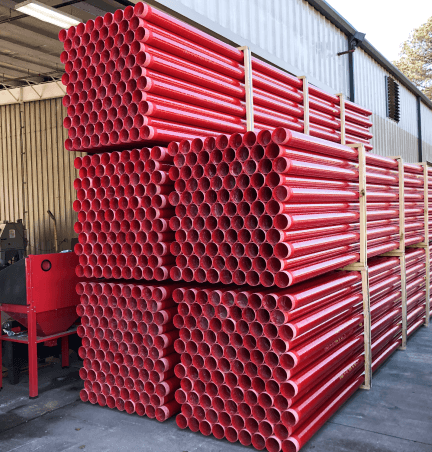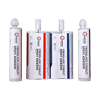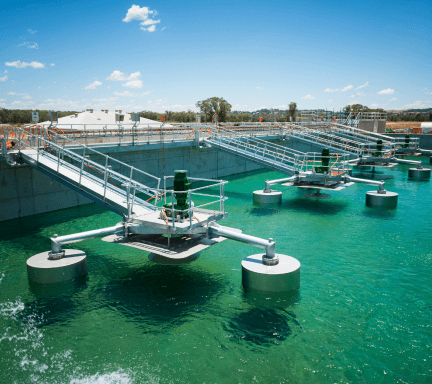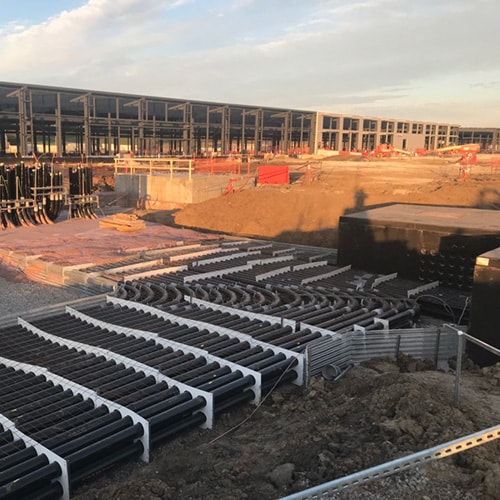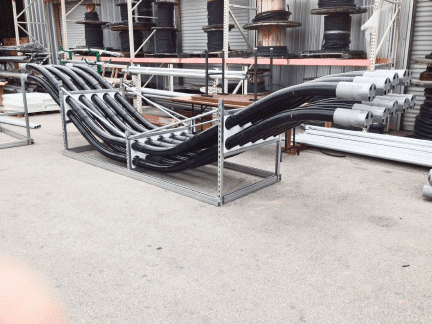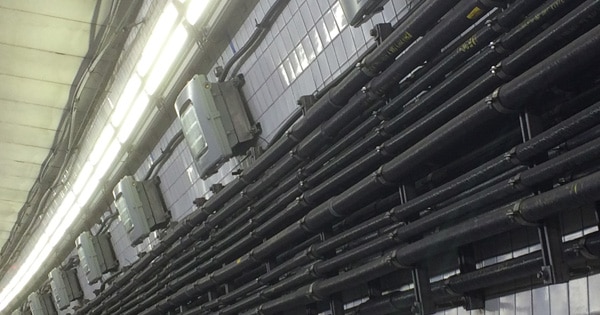The Midtown Tunnel connects Norfolk and Portsmouth, VA, and crosses the main channel of the Elizabeth River, providing a vital transportation corridor for more than a million vehicles every month. Safety is of the utmost concern in all engineering projects, but sometimes, potential problems don’t reveal themselves until long after construction. When that happens, those in positions of responsibility must act quickly.
CHALLENGE
In 2012, galvanized rigid steel conduit was discovered to be susceptible to failure when exposed to fire. UL subsequently dropped their safety listings, and many enterprises found themselves in an uncomfortably risky position, now liable for potential catastrophe due to faulty materials. Elizabeth River Crossings, a partner of the Virginia Department of Transportation for the design, construction and maintenance of the Elizabeth River Tunnels Project, had three tunnels that their contractor, Mass Electric, needed to urgently retrofit with flame-resistant underground conduit. A new tunnel was also under construction.
SOLUTION
Only two underground electrical conduit solutions can provide the fire safety that Elizabeth River Crossings now required: stainless steel conduit and phenolic conduit, a type of flame-resistant fiberglass conduit. Champion Fiberglass is the only producer of phenolic conduit that meets UL 2196 requirements and can withstand fire at 1850 degrees Fahrenheit for two hours. Mass Electric and Elizabeth River Crossings selected phenolic conduit for the project – saving half the cost of stainless steel conduit.
RESULTS
With the help of Champion Fiberglass, Elizabeth River Crossings found a way to increase safety within their tunnels and mitigate their liability in the case of catastrophe. By installing phenolic conduit instead of traditional stainless steel, Elizabeth River Crossings could offer a safe environment for travelers and streamline their investment by saving.








